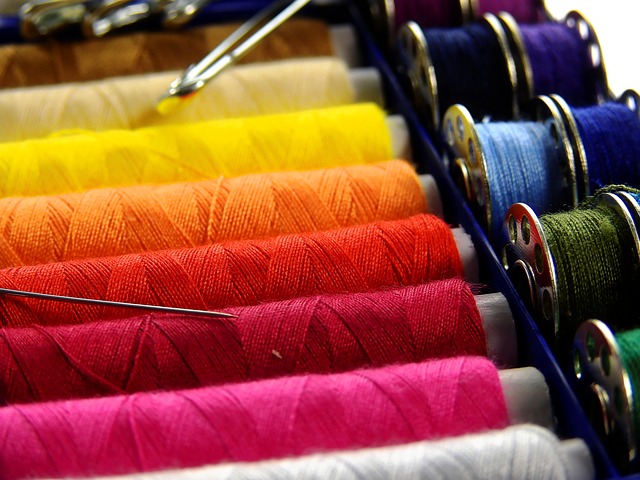Billion Dollar Unicorns: Stitch Fix Delivers A Surprisingly Fresh Take On Shopping For Fashion
According to a Tech Navio report published last year, the market for online fashion retail in the US will grow 14% annually through to 2020 driven by increased security measures for online payments, improved logistics with reference to product delivery, better online customer service, and easy-to-navigate shopping websites. Billion Dollar Unicorn club member Stitch Fix, that I wrote about briefly in 2014, has built a successful company in this space.

Stitch Fix’s Offerings
San Francisco-based Stitch Fix was founded in 2011 by Harvard student Katrina Lake. Katrina founded Stitch Fix to create a fashion retailer that would be able to integrate the human element of personal styling with high-quality clothing and proprietary algorithms. Stitch Fix’s first order was shipped out of her Cambridge apartment while she was still attending the Harvard Business School.
Stitch Fix operates on the popular subscription economy business model, but with a difference. It operates like a subscription service, but does not bind the customers to a monthly subscription service. Consumers can sign up for the company’s style boxes by filling out a Style Profile that tells the company about their size, style, shape, budget, and lifestyle. Stitch Fix then marries the customer’s style profile with style suggestions from its advanced algorithms that are managed by 75 data scientists and 3,400 stylists it employs.
The stylists hand pick five items of clothing, shoes, and accessories that will fit the subscriber’s tastes, needs and budget and mail the items to the consumer. The consumer can choose to get these five products monthly or occasionally. Each time that they get this style box, they are charged a styling fee of $20. They get to keep what they like and can return the rest of the products through a prepaid envelope. The $20 paid by the subscriber is applied as credit toward anything that is retained from the shipment. Customers who want to keep all the five items even get a 25% discount on the order.
Average price point of the products that Stitch Fix carries is $55. Its product range includes pants, skirts, shorts, dresses, sweaters, shirts, outerwear, scarves, jewelry, and bags from more than 450 established and up-and-coming labels and brands. Some of the brands include names like clothing and accessories by Kut From The Kloth, Eloquii, Joie, Gorjana, and Citizens for Humanity for their women’s selection.
Inspired by the success of the service, Stitch Fix has also expanded into other categories including menswear, maternity wear, and products for plus-sized women. For the menswear products, they have a line-up of more than 30 brands including clothing by Ben Sherman, Original Penguin, Scotch & Soda, 7 For All Mankind, Mavi, and Converse. The move into the menswear section will make it a direct competitor with Trunk Club and Bombfell. Trunk Club was bought by Nordstrom in 2014 for an estimated $350 million. But its failure to deliver success forced Nordtstrom to write off nearly $200 million from value last year.
Stitch Fix’s Financials
Quite unlike the other tech start-ups of the day, Stitch Fix has maintained a sound financial health due to the founder’s insistence on keeping costs low. Since it is privately held, it does not disclose detailed financial results. But recently it has opened up about its performance. The company has been cash flow positive since 2014 and has been profitable at a net income level on a GAAP basis since 2015. Revenues have grown from $500 million in 2015 to an estimated $730 million for the year ended July 2016. And, all of this, it has achieved through comparatively low outside funding.
Stitch Fix is expected to have raised $46 million in funding from investors including Benchmark, Baseline Ventures, Western Technology Investment, Structure Capital, and Lightspeed Venture Partners. Its last round of funding was held in June 2014 when it raised $25 million from Benchmark capital at a valuation of $300 million. Given its financial success since, the company has surpassed those initial valuations. Analysts expect that Stitch Fix will look to list soon at a valuation of $3-$4 billion.
I must admit that when Stitch Fix started, I wasn’t very impressed with its business model. After all, the company was sending products that the users hadn’t even seen online and, to top it, it allowed users to return goods without a charge. The logistics of return, to me, were not attractive. But Stitch Fix has managed to deliver a successful model based on its ability to personalize – not just style, but taste and budgets. Stitch Fix appears to have found the right blend of management who understands both the world of fashion and the ability of advanced computer science.
Users can integrate their style profile with their social media pages so that the stylists can get to know them. They can also create Pinterest boards to display their full style preferences. According to market reports, Stitch Fix is the “Moneyball of fashion” as it has been able to integrate a level of data science in a fashion company that has never been done before.
Sramana Mitra is the founder of One Million by One Million (1M/1M), a global virtual incubator that aims to help one million entrepreneurs ...
more


